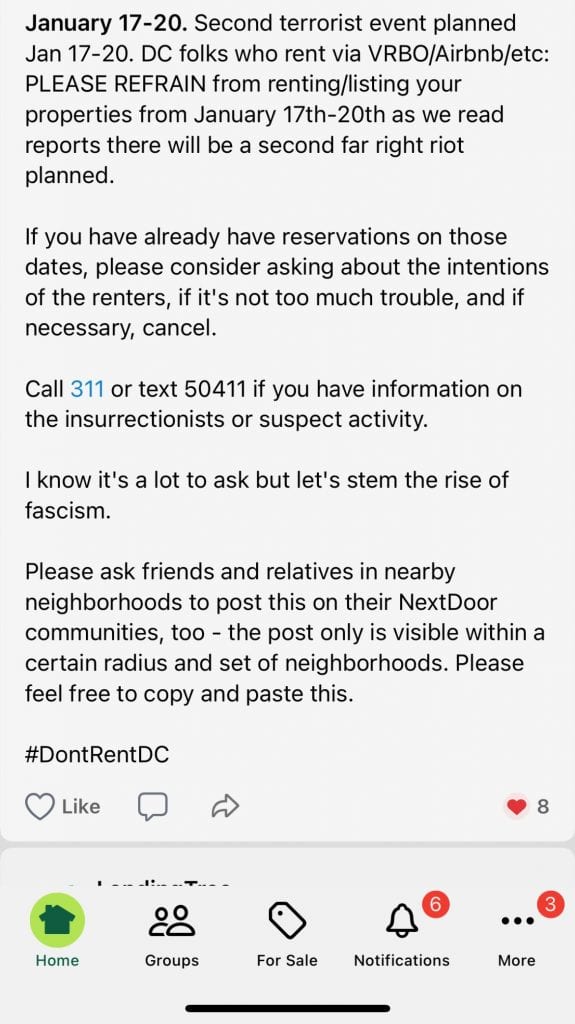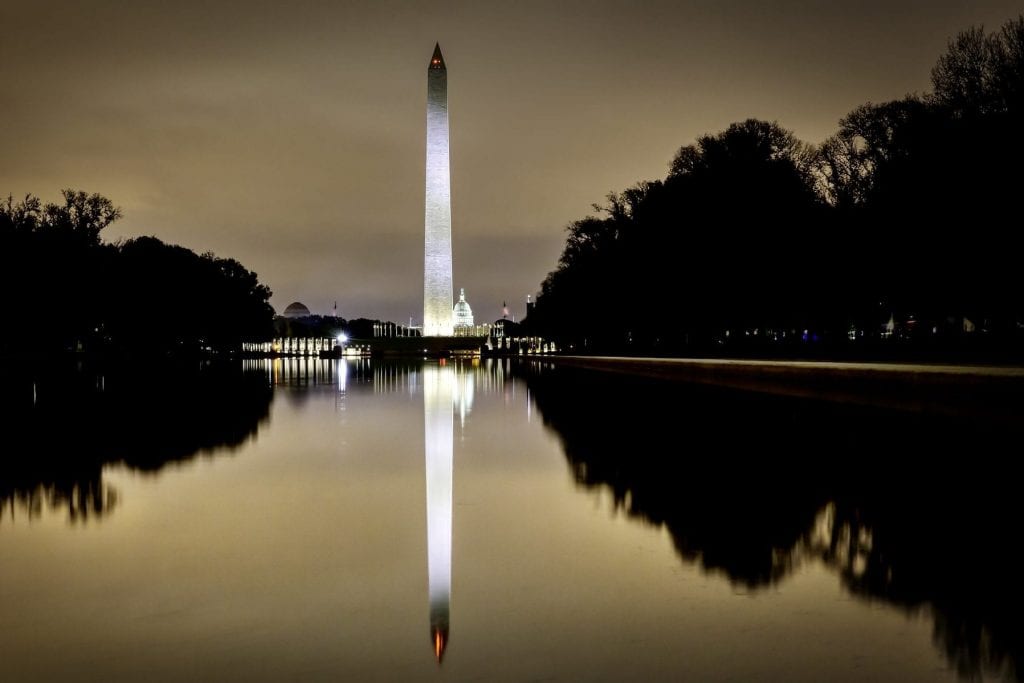Skift Take
Though already restricted due to Covid, Biden’s presidential inauguration week was expected to boost tourism in the nation’s capital. Those hopes are now dashed on the heels of last week's domestic terror attack — a sad plight for a city trying to revive from the pandemic.
Any given inauguration year, hundreds of thousands of residents and tourists descend on Washington D.C., bearing frigid temperatures to watch a new president being sworn in on the steps of the U.S. Capitol, but also to enjoy the nation’s capital’s iconic Smithsonian museums, art galleries, and international restaurants.
Hotel rooms in the Washington metropolitan area, stretching as far as Maryland and Virginia suburbs, would sell out months ahead. Occupancy rates ranged from 97 percent in 2009 for President Barack Obama’s first inauguration with $599 average daily rates, to 95 percent in 2017 at $708 average daily rates, with hotels having three to five night minimums, according to Destination DC hotel inauguration data obtained from market data firm STR.
This year’s inauguration was expected to be different, with a virtual parade and no inaugural balls and no public crowd on the National Mall due to Covid’s continuing alarming rates in the region. The Presidential Inaugural Committee had already urged citizens to “refrain from traveling to Washington DC and instead join from home in new and innovative ways.”
Following last week’s domestic terror attack on the U.S. Capitol, however, Washington D.C. Mayor Muriel Bowser is now urging Americans to avoid visiting the nation’s capital altogether for the inaugural event. Maryland and Virginia governors joined her shortly thereafter.
It’s a further staggering blow, costing businesses millions more from what was expected already to be a tepid tourism event.
Further deterring visitors, Bowser subsequently issued an order extending a prior pause on activities until January 22. This means the continued shutdown of indoor dining in restaurants, museums, libraries, the D.C. Circulator National Mall route and the Department of Parks and Recreation.
This all comes on the heels of a devastating year for D.C. tourism that has battered its hotel and restaurant industry. With heightened security stretching for longer than usual for an inaugural event — now running from January 12 through January 24 — it’s likely next week won’t be the boon it was expected to be for Washington D.C.’s tourism economy.
“Inauguration is typically a shot in the arm for the D.C. economy[,]” Elliott Ferguson, president and CEO of Destination DC, told Skift. “Given the current pandemic and security threats, as well as indoor dining and museums and attractions closed, we expect hotel availability to remain and a smaller economic impact in comparison to previous years.”
On Monday, the National Park Service announced it was closing the Washington Monument to tours until January 24, and possibly longer, “in response to credible threats to visitors and park resources”, noting that it may also “institute temporary closures of public access to roadways, parking areas and restrooms within the National Mall and Memorial Parks.”
Washington D.C.’s three major airports are also beefing up security measures, with the Transportation Security Administration on high alert, while hotels are also reviewing their security procedures, though this isn’t unusual for Washington DC hotels, particularly when there’s a major event.
“Hotels like the Capital Hilton are in great locations, which put them near the White House and other sites, but also likely congregation points for celebrations, protests and counter protests,” said Nigel Glennie, vice president of global corporate communications for Hilton, adding that teams were very experienced at protecting guests. Washington D.C. occupancy data for Hilton in the lead up to the inauguration was not available.
Glennie also noted that Hilton and its hotel teams do not adopt or endorse the views of any guest.
After Trump supporters were able to stay in the city’s short term rentals last week, all eyes fell on AirBnB, which then issued a seven-step plan this week in how it would review reservations for the metropolitan DC area to exclude or cancel bookings by any individuals identified as being associated with hate groups or having participated in U.S. Capitol attack. Then on Wednesday, Airbnb said it would go further and cancel all reservations for D.C. during inauguration week, adding “additionally, we will prevent any new reservations in the Washington, D.C. area from being booked during that time by blocking such reservations.”
Previously, there was skepticism as D.C. neighborhoods have begun circulating a petition demanding that AirBnB also provide incentives for homeowners not to rent their homes from January 16 to 21, to keep communities safe.
Skift’s airline reporter Edward Russell, a D.C. resident, noted tensions in the city ahead of the event. “This was posted on our Nextdoor last night, and I know the sentiment is shared by a lot of people. I think this is just a concerned resident, but people are nervous.”

Against post-holiday soaring Covid numbers and security concerns, plus the city’s federal buildings and institutions likely becoming less accessible to the public for a while to come as well as additional sights potentially closing, tourism in the capital may be coming to another screeching halt, dashing D.C. tourism’s hopes for an improved start to 2021.
UPDATED: This story was updated to include the announcement Wednesday by Airbnb that it was cancelling all reservations for D.C. during inauguration week.
The Daily Newsletter
Our daily coverage of the global travel industry. Written by editors and analysts from across Skift’s brands.
Have a confidential tip for Skift? Get in touch
Tags: coronavirus recovery, washington d.c.
Photo credit: Fewer tourists are expected for D.C.'s inaugural week as security heightens after last week's riots and major sights, like the Washington Monument (pictured) and indoor dining remain closed. rabesphoto / Flickr
